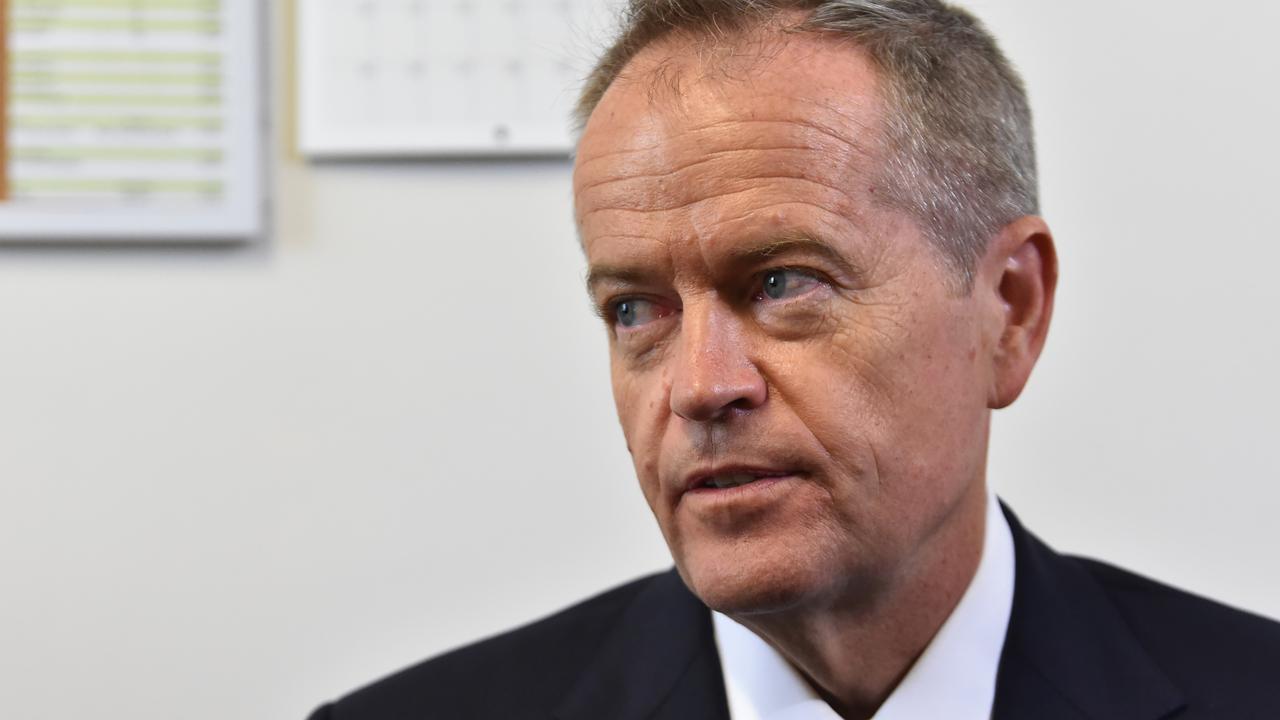Corporate chiefs tackle public service bureaucracy
Corporate chiefs have been drafted to the public service to advise on making management more ‘businesslike’.

Senior Qantas, ANZ, Telstra and Australia Post executives have been drafted to the Australian Public Service to advise high-level bureaucrats on making public-sector management more “businesslike”, as the Coalition prepares to unveil a radical modernisation plan.
Australian Public Service Commissioner John Lloyd has begun working with human resources experts from four of the nation’s biggest corporations, who will also consult groups of department deputy secretaries in coming weeks on performance and talent management, recruitment and termination.
Mr Lloyd has also launched a scathing response to Community and Public Sector Union “intransigence” over employee negotiations, blaming the union’s “scare campaign” for an impasse that has left staff in about 29 departments and agencies in limbo over their employment contracts.
“Some commonwealth public servants are being let down by the unions that represent them,” Mr Lloyd writes in The Australian today, in his first public comments on the dispute this year.
“This union attitude is nothing new. Over my long involvement in workplace relations, I cannot recall the CPSU embracing genuine reform initiatives that enhance workplace flexibility or improve efficiency.”
The initiative to bring in corporate advisers is understood to be in line with recommendations in an APS contestability review by senior businesswoman Sandra McPhee, described within the government as a blueprint for creating a mobile workforce that can move seamlessly between corporate Australia and the public service.
Mr Lloyd told The Australian that senior human resources managers from the four firms began advising the commissioner’s office late last year.
They will soon convene “small group workshops” with teams of senior APS managers “to progress the reform agenda” and implement Ms McPhee’s review.
“They will contribute to the important goal of introducing practical workplace improvement,” Mr Lloyd said.
“It’s quite an exciting time, actually. The aim is to update the way the APS recruits, develops talent, measures performance, facilitates staff mobility and arranges separations.”
The scope for savings at the APS is significant. At June 30 last year, the total workforce of the APS was 152,430, with an annual wages bill of $12.1 billion.
The development comes at a crucial time for public servants, who are embroiled in a bitter standoff between their union and the government over pay.
Leadership changes within the Coalition government have left only eight out of 22 cabinet ministers in their portfolios for longer than six months.
Employment Minister Michaelia Cash, who also has responsibility for the public service, and Finance Minister Mathias Cormann are expected to make public the results of Ms McPhee’s review in the coming weeks. “The review presents the public service with an exciting opportunity to remain at the pinnacle of service delivery,” Senator Cash said.
“Australia is renowned for having a world-class public service, though even the most effective systems require constant modernisation to remain contemporary. It is imperative that the Australian Public Service is positioned to attract and challenge the very best people.”
Involving Qantas and Australia Post, which have historically been party to protracted industrial disputes, in APS consultations may further alarm the public sector union during its ferocious battle against the government’s public sector bargaining policy. During the campaign, now in its third year, CPSU secretary Nadine Flood branded public sector bargaining as “ideological warfare”.
Crucial votes on enterprise agreements for one of the biggest APS agencies — Defence — loom ahead of the launch of Ms McPhee’s review.
The CPSU has urged members to vote down the government’s pay offer, which Senator Cash increased to a 2 per cent rise a year for three years after taking over last year from Eric Abetz, who signed off on offers closer to 0.5 per cent a year.
While some agencies have voted “yes” to proposed agreements, 80 per cent of staff at the Department of Human Services, another critical battleground in the union’s fight, voted down their agreement for a second time last week.
Mr Lloyd today signals a strong desire to end the standoff, declaring it “time to seal the deal” for most of the service’s 150,000 employees. “The CPSU is entitled to campaign vigorously,” he said. “However, at times the union position borders on becoming a scare campaign that misrepresents the position of the employer.”
The government is unlikely to raise its pay offer again: its strategy is to present the same agreement to staff as pressure mounts over loss of income and superannuation incurred in agencies that vote “no”.
The union demands annual wage rises of 3-4 per cent, which the government branded unrealistic, and objects to the stripping of rights and entitlements from agreements, which Mr Lloyd has said amounts to “union privileges”. An increase of 4 per cent a year would swell the government’s public service wages bill by $480 million a year.
Denying any ideological warfare, Mr Lloyd admits the bargaining policy that underpins the agreements introduced under Tony Abbott is part of a bigger picture, but stresses that the reform agenda is practical. “An opportunity exists to reach agreements more attuned to a modern workplace,” he writes.




